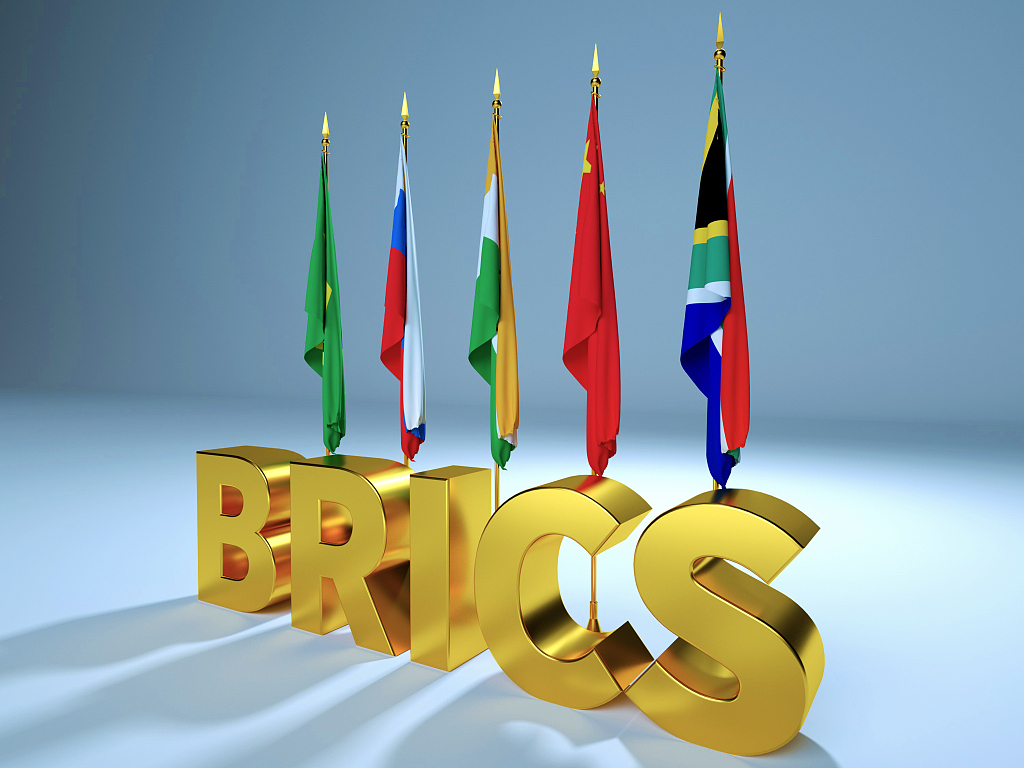By Ma Xiaolin | China Daily | Updated: 2023-09-13 07:18

The recently-concluded BRICS Summit in Johannesburg, which attracted global attention and yielded fruitful results, not only agreed on many issues but also inducted six new members in the grouping.
The Global South, comprising emerging market economies and developing countries, is striving to bring about transformative changes in the global sphere. With fresh perspectives and innovative approaches, BRICS is dedicated to reforming the world governance system and reshaping the distribution of power in international organizations and institutions in order to help improve the life of the majority of people in the world.
The highlight of the BRICS Summit, however, was the inclusion of Argentina, Egypt, Ethiopia, Iran, Saudi Arabia and the United Arab Emirates as new members. The six countries will become full BRICS members on Jan 1, 2024. BRICS has also pledged to open its doors to more countries of the Global South, progressively expanding the grouping.
BRICS has harnessed the collective strength of its existing five members (Brazil, Russia, India, China and South Africa) to slowly become a powerful force, influencing global economic and trade relations. This can be attributed to its substantial credibility, and the fact that its five member countries already account for 25 percent of the global GDP (nominal). In terms of GDP(purchasing power parity) the combined economic strength of the BRICS countries has surpassed that of the G7 nations.
The fact that the BRICS countries account for 40 percent of the global population makes the grouping highly significant in today’s world. After the six countries become full BRICS members, the grouping’s share of global GDP (nominal) will rise to 29 percent, making its economic influence even more pronounced and impactful.
The popularity of BRICS reflects the evolving sentiments of countries and their people. Countries of the Global South have become weary of the post-war world order, because it is still dominated by Western powers and their allies. They have become tired of the US-led West’s hegemony and the United States’ and its allies’ tendency to draw lines based on ideology, political systems, economic development models, and even ways of life.
There is also growing dissatisfaction with the imposition and promotion of Western values on developing countries, and the linking of investment, trade, and technology transfer with political agendas. Also, the Western powers frequently use their domineering capital as tools to interfere in the internal affairs of other countries.
The surging appeal of BRICS signifies a shift in international power dynamics, with the balance tilting from the Global North to the Global South. Since the end of the Cold War, the contributions of Western alliances to global peace, security and development have been diminishing due to frequent economic crises and prolonged military conflicts. This has forced Western powers to incite great power confrontation, trigger a new Cold War, advocate „decoupling“, use „economic coercion“ and misuse sanctions to regain their power and influence.
Countries of the Global South are determined to forge their own paths of development, safeguard their developmental rights, and pursue modernization in a way that suits their real conditions. They aim to chart new courses which would be marked by inclusivity and development, and avoid geopolitical entanglements and ideological disputes. This approach will strengthen the cooperative foundation of multilateralism and internationalism, fostering development and shared prosperity for all.
Some have likened the Johannesburg summit to the 1945 San Francisco Conference. The outcomes of the San Francisco Conference were eventually distilled into the United Nations Charter, which established the foundational framework for the post-war international legal system. Similarly, the Johannesburg summit has reaffirmed the principles and spirit of the UN Charter, and is a poignant tribute to the original intentions behind the UN’s establishment and emphasizes the importance of promoting multilateral cooperation and opposing unilateralism.
Others have likened the Johannesburg summit to the 1955 Bandung Conference, where many newly independent Asian and African nations met without the involvement of any major powers. The Bandung Conference established milestones in cooperation, development, anti-colonialism, and peaceful coexistence. In a similar vein, the Johannesburg summit echoes the sentiments of resistance against Western powers and neo-colonialism, and signifies the resurgence of the Global South, asserting their determination to shape their own destiny and future.
Still others have compared the Johannesburg summit with the inception of the Non-Aligned Movement in 1961. The NAM began with 25 founding member countries, with the aim of breaking free from the Cold War framework. Today, it includes more than 150 countries and observers, comprising two-thirds of the UN member states and 55 percent of the global population, with the majority being developing countries from Asia, Africa, and Latin America.
The Johannesburg summit has hoisted the NAM banner, by adhering to the principles of „dialogue, not confrontation, and partnership, not alliance“. It has injected new vigor into the movement, empowering the Global South to become a driving force for shaping a new world order of mutual respect, common development and shared prosperity.
The author is the dean of and a professor at the Institute for Studies on the Mediterranean Rim at Zhejiang International Studies University. The views don’t necessarily reflect those of China Daily.
If you have a specific expertise, or would like to share your thought about our stories, then send us your writings at opinion@chinadaily.com.cn or comment@chinadaily.com.cn.
 Макроекономија Економске анализе, Србија, окружење, и међународна економија
Макроекономија Економске анализе, Србија, окружење, и међународна економија